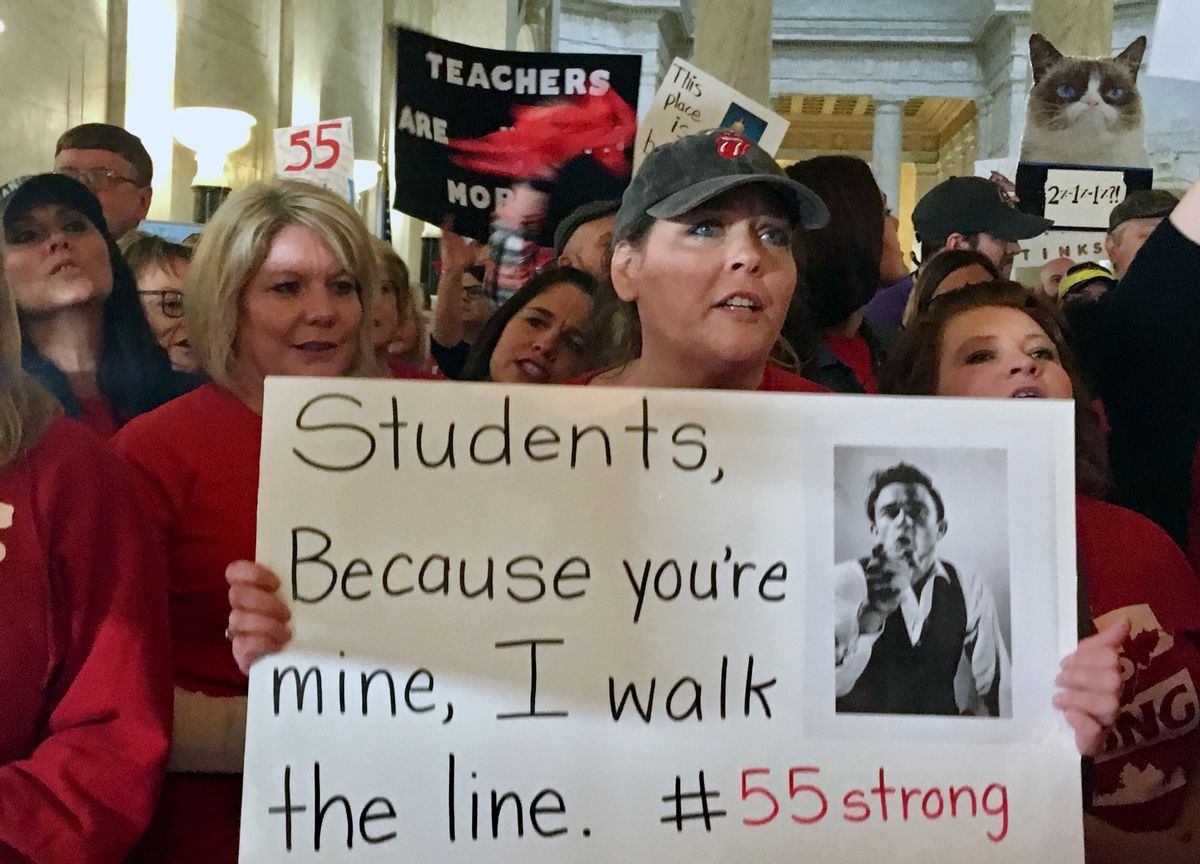The West Virginia teachers strike continues to linger on because the state legislature, despite its generosity to energy companies, is unwilling to make more than meager concessions to its educators.
Although Gov. Jim Justice agreed with the union leaders to provide teachers with a 5 percent pay raise in their first year, that deal stalled when Republicans in control of the State Senate balked at the concept of needing to pay it, according to CNN.
Even if the bill had passed, however, it would not have necessarily quelled the teachers union's discontent. One of their biggest complaints was that the state health insurance plan, the Public Employees Insurance Agency (PEIA), required teachers to pay more than they could afford.
"They told us that essentially if you weren’t a single person, if you had a family plan, your health insurance was going to rise substantially," Katie Endicott, a high school English teacher, told The New York Times regarding the origins of the strike. "As a West Virginia teacher — and I’ve been teaching 10 years — I only clear right under $1,300 every two weeks, and they’re wanting to take $300 more away for me. But they tell me it’s O.K., because we’re going to give you a 1 percent pay raise. That equals out to 88 cents every two days."
Gov. Justice did not seem sympathetic to the teachers' situation as he spoke to striking teachers from the back of his SUV earlier this week.
"I'm trying. What else can I do? I'm not king. I'm doing what all I can possibly do," Justice told the strikers.
Part of the problem with Justice's argument, though, is that it would be possible to give the teachers a reasonable income — that is, if West Virginia decided to stop giving preferential treatment to energy companies. That has been the argument of one of the state's rising stars, Democratic State Senator Richard Ojeda.
Then, this January, he stood on the Senate floor and argued in fiery speeches that energy companies should pony up more taxes so teachers could get better benefits and pay. A strike, he warned, was not out of the question. A month later, teachers from all 55 counties walked off the job—a first in the history of the state—instantly making Ojeda the father of one of the region’s largest labor actions of the past 30 years.
For the time being, however, it seems that West Virginia's deep red politics — the state overwhelmingly supported Donald Trump in the 2016 presidential election — are going to keep teachers either underpaid or striking. As a result, the state's schools can be expected to remain closed for the foreseeable future.

Shares